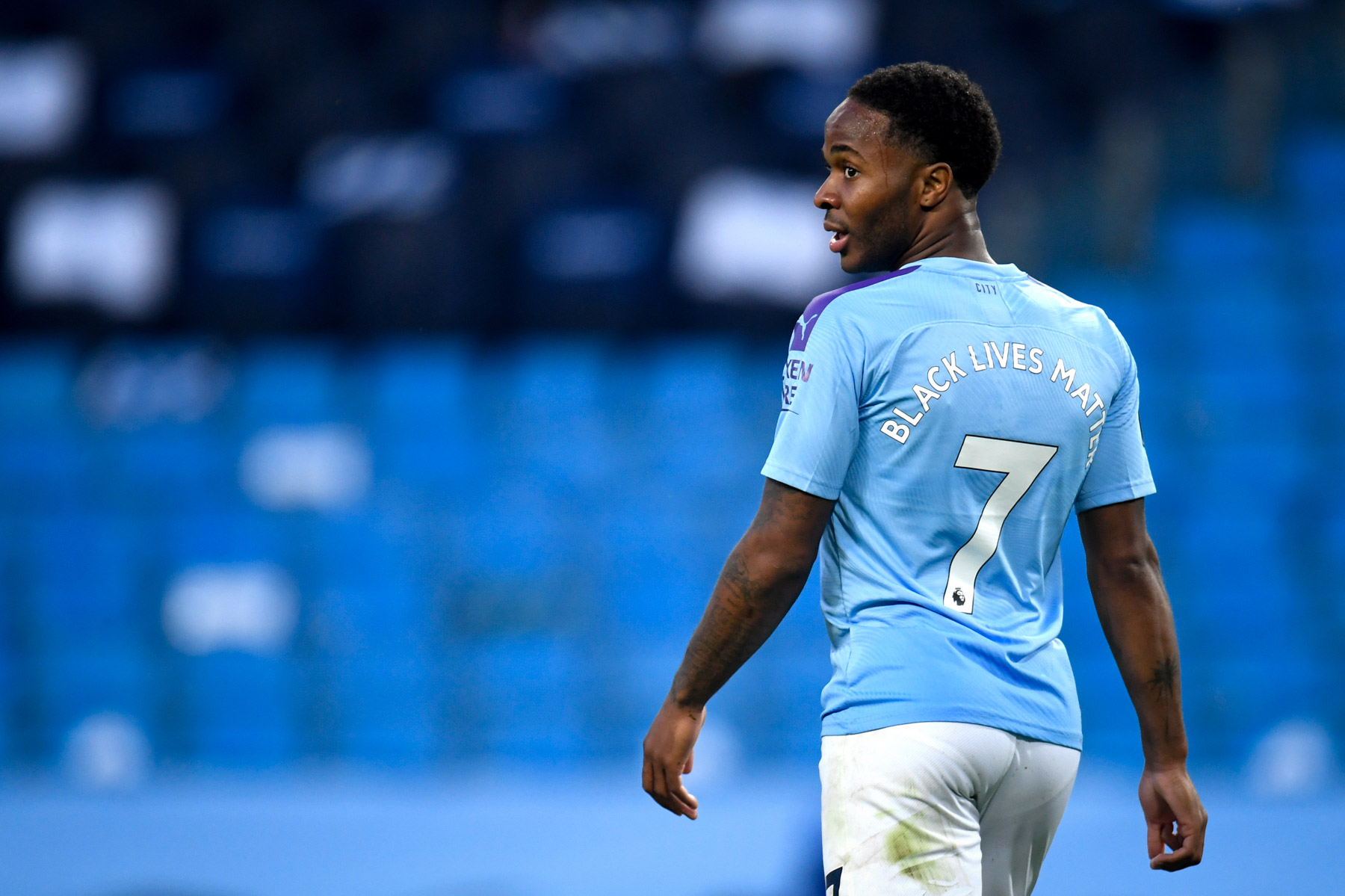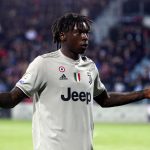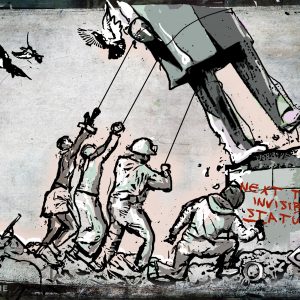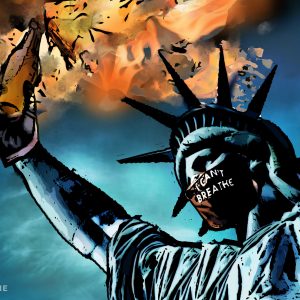Sport supports the fight against police brutality
The senseless killing of George Floyd has once again highlighted the danger of being black in the supposed land of the free. Sports stars are speaking out as waves of protest spread around the worl…
Author:
22 June 2020

Sport is often viewed as the great escape, providing brief but necessary relief from the world and its worries for millions. Whatever the code, however complicated the road, sport as escapism has long been treasured.
The timing of the release of the Netflix documentary The Last Dance – in the midst of the Covid-19 pandemic, when almost the entire world was stuck at home for weeks on end – saw the epic end of Michael Jordan’s astonishing basketball career hold court on social media.
It became the topic of online discussion every time a fresh serving of the documentary series was put up for global consumption. Ten slices about the rise of the 1990s’ Chicago Bulls team, feasted upon rapaciously by an audience famished for fresh content.
The greatest-ever debate was revisited. Stars from many sporting codes and eras acknowledged No. 23’s immortality. The assumption was that, outside of the coronavirus, there would be no greater talking point. That was until the United States provided an alternative narrative with George Floyd’s death at the hands of police officers in Minneapolis, Minnesota, on 25 May.
Floyd’s frantic, final moments in public view, trapped beneath the kneeling force of a police officer with three others around him, have been seen again and again around the world. “I can’t breathe,” he pleaded repeatedly. Those three fateful words became another hashtag for the movement that has been rumbling and raging in the US for years.
Related article:
The Black Lives Matter movement started in response to law enforcement killing mounting numbers of black people. The narrative has long divided a nation whose response is always under a microscope.
From a sporting perspective, National Football League (NFL) quarterback Colin Kaepernick gave the civil rights movement an extremely public face by refusing to stand during the national anthem, a proud American tradition, before sporting fixtures. He took a knee instead.
Kaepernick insisted he was using his platform to protest against police brutality and not to disrespect the military that served the country, something of which he was accused. US President Donald Trump heavily criticised his actions, which reflected Kaepernick’s stance on how the US treats racial minorities and which several NFL players had emulated.
Trump called for franchises to fire players who chose to kneel during the anthem and Kaepernick’s career was effectively blackballed. His unflinching stance found support, however, in apparel giant Nike. The company featured him in a powerful advert whose punchline challenged viewers to “believe in something, even if it means sacrificing everything”.

The NFL backtracks
In the global glare of the furore that surrounded Floyd’s untimely death – and so many more like him – at the hands of police officers, Kaepernick has remained resolute, casting aside many of his professional ambitions to shine an uncompromising light on one of America’s great injustices.
Belatedly, his employers and colleagues have revisited their reactions to his stance. NFL commissioner Roger Goodell apologised on social media for the organisation’s initial response, although it was seen by many as too little, too late. Outspoken film director Spike Lee dismissed its sincerity.
“We, the NFL, condemn racism and the systematic oppression of black people. We, the NFL, admit we were wrong for not listening to NFL players earlier and encourage all to speak out and peacefully protest. We, the NFL, believe Black Lives Matter,” Goodell said in a video message posted on 6 June, as tension mounted across the US.
Related article:
There were protests nationwide and calls for justice, not only for Floyd but also for other victims of police brutality. Kaepernick led the calls for protest. “When civility leads to death, revolting is the only logical reaction… Rest in power George Floyd,” he tweeted just days after Floyd died.
As the US was increasingly divided by historically tense lines of privilege, protest and retaliation, the world watched and took up the call. Sports stars, entertainers and public figures announced their solidarity with the Black Lives Matter movement.
Thousands protested in England despite the swathe of Covid-19 deaths in the country. Heavyweight boxing champion Anthony Joshua was among the protesters, joining a march in his hometown of Watford, where he read a speech written by someone who couldn’t be there.
Elements of that speech, which spoke of “hitting them where it hurts”, went viral. Joshua became the target of massive outrage on social media, but the heavyweight counterpunched. “If you think I’m a racist, go fuck yourself!” he tweeted on 7 June, explaining that his impromptu speech had been taken out of context and that he was advocating to create better opportunities for African and Caribbean communities in the Watford area.

Racism in football
Further north, English and Manchester City footballer Raheem Sterling said that racism is “the only disease right now”, adding that the Black Lives Matter protests were but a starting point. Football continues to pay lip service to racism, especially in Europe.
The monkey chants and bananas thrown on the field at black players still happens, but the punishment is usually a fine or a crowd ban for a few matches. As leagues around the world resume their seasons behind closed doors, the supposed impact of playing without crowds has been shown up. The show goes on, because football without fans is still football on television. The cries of Sterling and so many other footballers who have suffered direct abuse from the stands are for stronger action, because petty fines and suspended crowd bans are not a deterrent.
Sterling went further, saying there is a lack of top-level management opportunities in a league in which well over 25% of players are black. The fast-track to elite management enjoyed by the likes of Steven Gerrard and Frank Lampard has often been compared to that of other former England internationals, such as Paul Ince and Sol Campbell, who had to spend a lot longer proving themselves.
Related article:
Sterling has often been portrayed harshly in the press, simply for doing things common to most footballers. He went so far as to accuse the mainstream media of fuelling racist behaviour in 2018, as he cited the language used to describe two young Manchester City teammates. Both had bought houses for their mothers, but the headlines were slanted quite differently, a portrayal Sterling said was unacceptable.
As the Black Lives Matter protests have continued around the world, many sporting bodies have started to hold their hands up and accept that there is a need for change: a change in practice, a change in culture and a change in their attitude towards racism in their sporting codes.
The senseless killing of Floyd may have been the catalyst for this latest tsunami of emotion and protest, but this is a storm that has been building and quietly raging in society for a long time. The questions around the tearing down of symbols of oppression around the world, such as the statue of slave trader Edward Colston, are symbolic of the larger issue at hand.
The fact that such statues still stand around the world, defiant in the face of many whose past and present were framed by their actions, is a particular sore point to those who have to see them on a daily basis. It is insensitive that they still stand, given their genesis.
Tearing those symbols down doesn’t change the past, but their removal helps to start shaping a future that hopefully fosters greater understanding and inclusivity. It is a long road, however, and even America is a prime example of that.
Related article:
The US president had already said that he would love to see NFL stars who knelt during the national anthem fired. He argued on social media with New Orleans quarterback Drew Brees, who had apologised for insensitive tweets about kneeling during the anthem. Brees added that he was in full support of the black community, in their fight against systemic racial injustice and police brutality.
“I condemn the years of oppression that have taken place throughout our black communities and still exists today. I acknowledge that we as Americans, including myself, have not done enough to fight for that equality or to truly understand the struggles and plight of the black community… I will never know what it’s like to be a black man or raise black children in America, but I will work every day to put myself in those shoes and fight for what is right,” Brees said in an extensive and emotive post.
Jordan finally lands support
Trump’s extremely personal response to Brees and, indeed, any athlete who speaks on this issue is incredible, given all that comes with his position and power. Even from afar, it appears to be a tumultuous time to be an African American, in the land of the supposedly free.
The Sterlings and Joshuas and Kaepernicks of this world are tired, as are many others like them around the world. There have been still more killings at the hands of the police since Floyd died. And once crowds return to football stadiums, it is likely that there will still be racial abuse hurled at black players.
The wheels of change turn even more slowly than those of justice. The courage of young athletes in making a stand, which is usually detrimental to their back pockets, is hugely commendable. But they know only too well that the message tends to die down and the status quo remains.
This time, however, there appears to be a greater hope for social change.
The most watched golf tour in the world, The PGA Tour, reopened with the Charles Schwab Challenge where there was a moment of silence each day of play at 8:46am, in memory of George Floyd.
The most watched football league in the world, the English Premier League, returned on 17 June with all players in the opening fixtures between Aston Villa and Sheffield United, and then Manchester City and Arsenal that evening, taking a knee of solidarity before the opening whistle.
Even with silence in the stands, those collective gestures of support and solidarity beamed loudly into millions of homes across the world.
This matters.
Related article:
In the midst of the coronavirus pandemic, the black man that was initially the most talked about on social media has thrown his considerable weight behind the Black Lives Matter movement. Much like his buddy Tiger Woods, Michael Jordan has often steered clear of politics, even if it is on his doorstep. In 1990, he refused to endorse an African-American Democrat in North Carolina because “Republicans buy sneakers, too”.
It is a comment that has been brought up for the past 30 years and Jordan has sought to explain that it was an off-the-cuff remark to teammates. But it stung the ears of those who sought his celebrated endorsement at the time, as well as many in his community.
It was a surprise, then, when Jordan lent his voice to the movement. “It’s 2020 and our family now includes anyone who aspires to our way of life. Yet, as much as things have changed, the worst remains the same. Black lives matter. This isn’t a controversial statement. Until the ingrained racism that allows our country’s institutions to fail is completely eradicated, we will remain committed to protecting and improving the lives of black people,” he said in a Jordan Brand statement.
Jordan went beyond words, however. The sporting billionaire made a record $100 million (about R1.75 billion) donation, spread over 10 years, to organisations engaged in the fight for racial equality and social justice.
It is the greatest amount ever donated by an athlete, and it perhaps reiterates that the fight against the racism Jordan says he has seen his entire life remains the greatest battle – on and off the field. He added that money alone won’t change things, but the sheer scale of his financial commitment made the world sit up once more and take note of the impact Jordan has on it.
The Last Stance, if you will.





